Threat of ‘war or peace’ as Taiwan prepares to vote
It’s one of the world’s most dangerous geopolitical flashpoints. The candidate Beijing hates is narrowly in front. Here’s all you need to know about next week’s Taiwanese election.
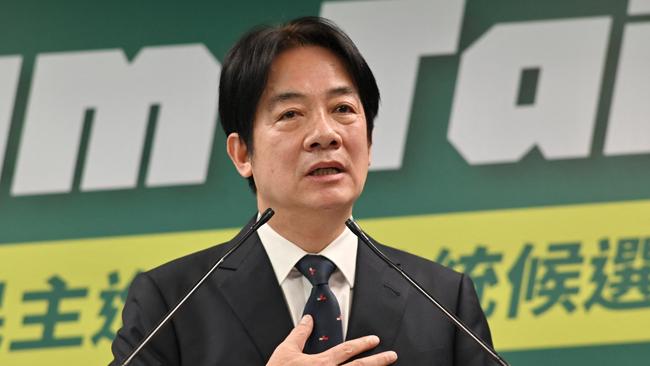
If you believe Taiwan’s main opposition party, next weekend’s presidential election is a choice between war and peace.
Beijing has done its bit to stoke fear, warning of grave consequences if the favourite, William Lai, the candidate from the ruling Democratic Progressive Party, wins on January 13, next Saturday.
So it is no surprise that with only a week until the vote, some of Taiwan’s 23 million people are rattled. A Taiwanese friend told me her family, all loyal Kuomintang (KMT) voters, is preparing to evacuate an elderly relative if the DPP wins – just in case.
And, in private conversations, some Western diplomats worry about who will follow President Tsai Ing-wen after her remarkably disciplined eight years managing one of the world’s most dangerous geopolitical flashpoints. “We don’t need another crisis in the world right now,” one tells Inquirer.
The stakes are huge. And with only seven days to go, the most respected Taiwan election watchers say the race is too close to call.
“This is one of those elections where we have to wait until they count the votes,” says Nathan Batto, a political scientist at Taipei’s Academia Sinica. “The crystal ball is pretty cloudy.”
Taiwan routinely tops lists of Asian democracies. Its transformation in less than 40 years from an authoritarian state, run under martial law by the KMT, into the most liberal society in East Asia has been remarkable.
Because postal votes are not allowed, thousands are flying back to Taiwan to participate.
“It’s important,” says Chou Li-Fang, 64, who has travelled to Taipei from her home in California. “Your vote can change things.”
However, the world’s only Chinese-speaking democracy remains a divided nation and Beijing is instrumental in aggravating those divisions. The Chinese Communist Party warps Taiwanese politics by refusing to deal with the DPP, even under the helm of a leader as restrained as Tsai. It has cut all official communication with Taipei since her election in 2016.
The ominous backdrop to Taiwan’s national politics is Beijing’s threat to wage war if Taipei formalises its independence, revises its anachronistic constitution, changes its confusing official name, the Republic of China, or crosses some other CCP-drawn red line.
There’s nothing new in any of that. Beijing was blasting missiles at Taiwan back in 1996 in a failed effort to influence its first presidential election. What has changed is the capability of the People’s Liberation Army, led by its commander-in-chief, Xi Jinping. It’s now the world’s second most lethal military.
Senior figures in Washington, Tokyo, Canberra and elsewhere believe China’s leader – tangled in a host of domestic economic problems – wants 2024 to be a year of relative restraint in his country’s intense global battle with the US for influence. But the subject that they know is likeliest to end Xi’s recent smile diplomacy is Taiwan, which, as he told US President Joe Biden in their meeting last November, remains “the most important and most sensitive issue”.
‘A troublemaker through and through’
Taiwan went into a polling blackout, required by law, at midnight on Tuesday, 10 days before the election. The final polls conducted had Lai, who is Taiwan’s vice-president, in front by 2 per cent to 5 per cent.
If Lai wins the first-past-the-post race next Saturday, it will be the first time in Taiwan’s almost three-decade history of presidential elections that the same party has won three consecutive terms.
Beijing will be furious. “He is a troublemaker through and through,” China’s foreign ministry has said of Lai.
The US, Taiwan’s major security partner, and its allies are alert for retaliation from Beijing if he is elected president. “It will only be a question of when and how large,” says one senior diplomat in Taipei.
Despite the campaign rhetoric, no one credible is expecting a post-election invasion, but intimidating military drills are quite likely. Trade strikes are almost certain. “Beijing will be keen to test Lai,” another diplomat says.
In Beijing’s eyes, the 64-year-old former doctor is a political extremist. His main sin is that he leads a party, the DPP, that Beijing considers irredeemably “separatist”. Lai, as with his predecessor and everyone in the DPP, refuses to accept the “1992 consensus”, an arcane formula agreed to between Beijing and the KMT, which says there is but “one China” (even if the CCP and its former civil war enemy, the KMT, disagree over who rules that one China).
Instead the DPP says that is all ancient history from Taiwan’s pre-democratic era and that its interest is in governing the island’s 23 million people.
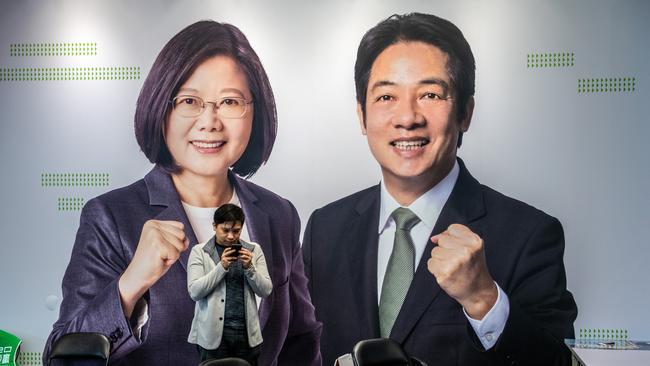
The son of a coalminer, Lai was previously mayor of Tainan, a city in the DPP’s heartland in the south of Taiwan. He has campaigned for “Taiwanese to have confidence in our own culture, with respect and dignity for our nation”.
Since becoming the ruling party’s candidate, Lai has tried to calm concerns in Washington and elsewhere that he would do anything rash in office. He promises a continuation of Tsai’s formulation that Taiwan does not need to declare its independence because it is already self-governed.
For the most part, he has stuck to a script that has repeated verbal formulas used by the fastidious Tsai to discuss the highly sensitive nature of Taiwan’s relations with China. But there have been deviations during the campaign, such as when he said that once “Taiwan’s president can enter the White House, the political goal that we’re pursuing will have been achieved”.
It’s the sort of rhetoric that rattles Washington and its allies, including Australia.
Many Taiwanese voters aren’t worried. Cynthia Hsieh, 37, says Beijing’s war talk is bluster. “I don’t think they will really attack Taiwan … It won’t benefit them. Japan, Australia, America – they have all been planning for this. Nobody wants to trigger World War III.”
Lai has also promised to continue the current administration’s attempts to reduce the Taiwanese economy’s vulnerability to China.
Frank Teng, 76, says that’s one of the reasons he is voting for the DPP. “Don’t put all your eggs in one basket,” he says.
From 2002 to 2012 Teng worked for a Taiwanese electronics company in Suzhou, a canal city in China near Shanghai. He now lives in Taoyuan, in Taiwan’s northwest.
He loved his time in Suzhou. “It’s very beautiful.” But he says that was another era – when China’s economy was growing much faster and before the risks for Taiwanese businesspeople rose considerably after Xi came to power. “There aren’t as many opportunities there,” Teng says.
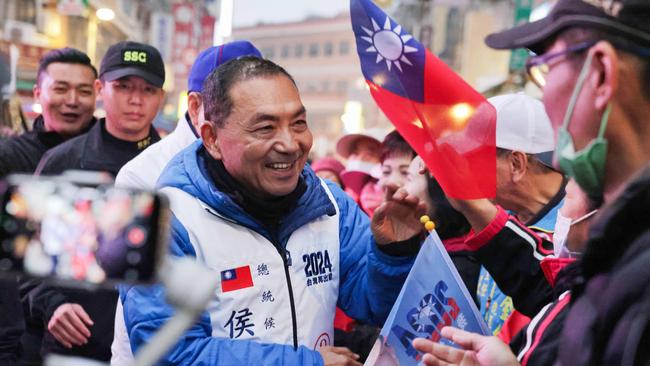
From fighter planes to passenger jets
The KMT’s candidate, Hou You-yi, has not written off the China market. He has campaigned promising that his ability to engage in dialogue with Beijing will calm tensions, boost trade and see a return of Chinese tourists.
“I don’t want what comes from China to be fighter planes but passenger jets,” Hou said at a business forum last November. The former cop turned mayor of New Taipei is an unusual candidate for the KMT, the party that ruled China before retreating to Taiwan after losing the Chinese civil war in 1949 to Mao Zedong’s Communist Party. Hou, 66, is from a family born in Taiwan, not mainland China (the standard pedigree for a KMT leader). He is also more comfortable speaking Taiwanese Hokkien, rather than Mandarin, another oddity for a KMT presidential candidate.
He champions the “3Ds”: deterrence, dialogue and de-escalation. He wants to return to the formula of Tsai’s predecessor as president, the KMT’s Ma Ying-jeou – maintaining close ties with the US while also keeping dialogue open with China.
He says the DPP’s China policy is akin to “a grasshopper provoking a rooster”.
“The current status quo is that the Taiwan Strait is on the brink of war,” he says.
Surveys show many agree. One by Taiwan’s CommonWealth Magazine, of almost 15,000 respondents, found almost half worry that a war could break out between Taiwan and China in the coming five years. Among chief executives, that rose to 60 per cent.
However, the KMT’s position as the only party Beijing will deal with creates suspicion among much of the Taiwanese electorate, suspicions its political opponents never tire of exploiting.
“Mr Hou You-yi, why does the CCP support you?” Lai asked pointedly during a recent presidential candidates debate.
Hou accused Lai of “playing dirty tricks” by smearing him as “pro-China”.
He said his KMT would pursue a “middle path”, opposing Taiwanese independence while preserving Taiwan’s free and democratic system. And he was emphatic that he opposed Beijing’s policy for Taiwan, the Hong Kong-style “one country, two systems” model.
Surveys of public attitudes show people in Taiwan, from across the political spectrum, have negative attitudes towards China’s government, which they view as hostile and a malign influence. The idea of “unification” with China is similarly deeply unpopular.
“But they do not reject Chinese culture in the same way,” say Taiwan experts Shelley Rigger and Lev Nachman, who conducted a major survey for the Brookings Institution.
While many in Taiwan say they don’t feel safe to travel to China, many local tourism operators and small business owners want a return of customers from the People’s Republic of China, banned by Beijing from travelling to Taiwan since 2019.
“If the KMT is ruling, Chinese tourists can come,” says Yang Cyan, 28, from Kaohsiung, the biggest city in the south of Taiwan.
He worries another four years of a DPP president will be bad for his family’s photo-framing business.
The third force
Taiwan’s presidential elections are traditionally a tussle between the “blue” camp (the KMT) and the “green” camp (the DPP). This year’s poll features a third force, the “white” camp, led by the eccentric former Taipei mayor Ko Wen-je.
The former surgeon, who has self-diagnosed as having Asperger’s syndrome, is the presidential candidate for the Taiwan People’s Party.
Ko, 64, promises a “new politics”, guided by science, pragmatism and rationality. “I am not bound by ideology,” he says.
It is a campaign pitch that has resonated with younger voters, who are worried about cost-of-living pressures, prohibitive property prices and a sluggish economy.
“I used to be uninterested in politics,” Mark Lou, 35, tells me. As with so many of Ko’s supporters, he found him through the internet. “Now I watch him on YouTube every day.”
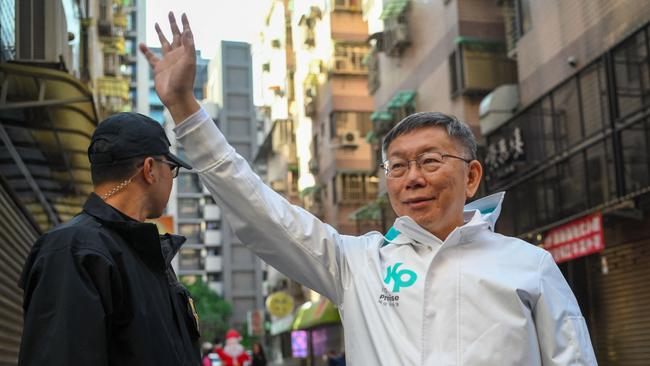
Ko has a blunt style that makes him an engaging communicator. He is also unpredictable, a potentially highly combustible quality in a Taiwanese president. He has fallen out with both the DPP and KMT in recent years.
Not surprisingly, many seasoned observers judge him as by far the riskiest candidate.
Ko says he would make “deterrence and communication” the foundation of his China policy, and says his fundamental stance is “Taiwan autonomy, cross-strait peace”. But it is unclear who would fill key national security and foreign policy positions if he won. His fledgling party has little experience with either.
His support has fallen in recent months, although it remains at about 20 per cent, according to the final opinion polls. That would be too low to win the presidency, but it could help his TPP win enough seats in the parliamentary election – which is also held next Saturday – to form a kingmaking bloc.
KMT advisers say their best chance to win the presidency is if some of Ko’s supporters switch to them in the campaign’s final week. Saturday will reveal if this is merely wishful thinking.
Ms Ou, 56, works in a government job in Taitung, in Taiwan’s rural southeast, and says she’s worried about China launching sanctions on Taiwan’s agricultural areas, a common tool used to express its unhappiness. “Most of my neighbours are farmers.”
But she identifies as one of the almost 20 per cent of voters who say they haven’t decided for whom – or even if – they will vote.
Asked about the description of the election as a choice between “war and peace”, she says she kind of agrees.
Yet, with the election fast approaching, she says she still hasn’t decided how she will vote. “I probably won’t decide until the last day.


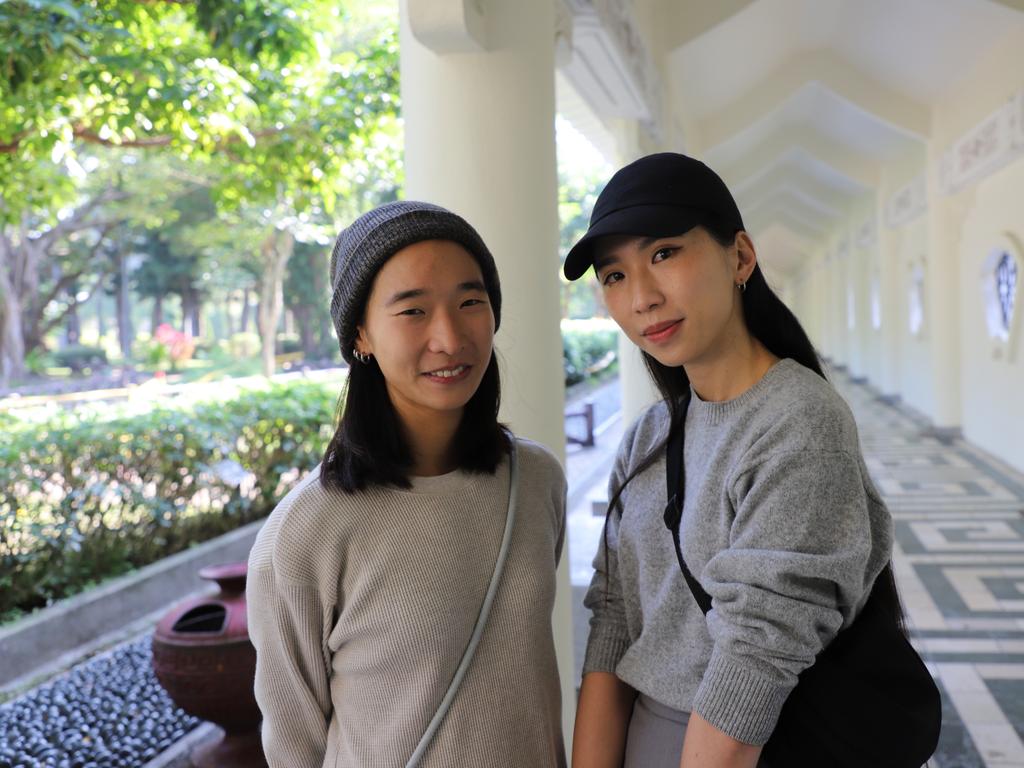
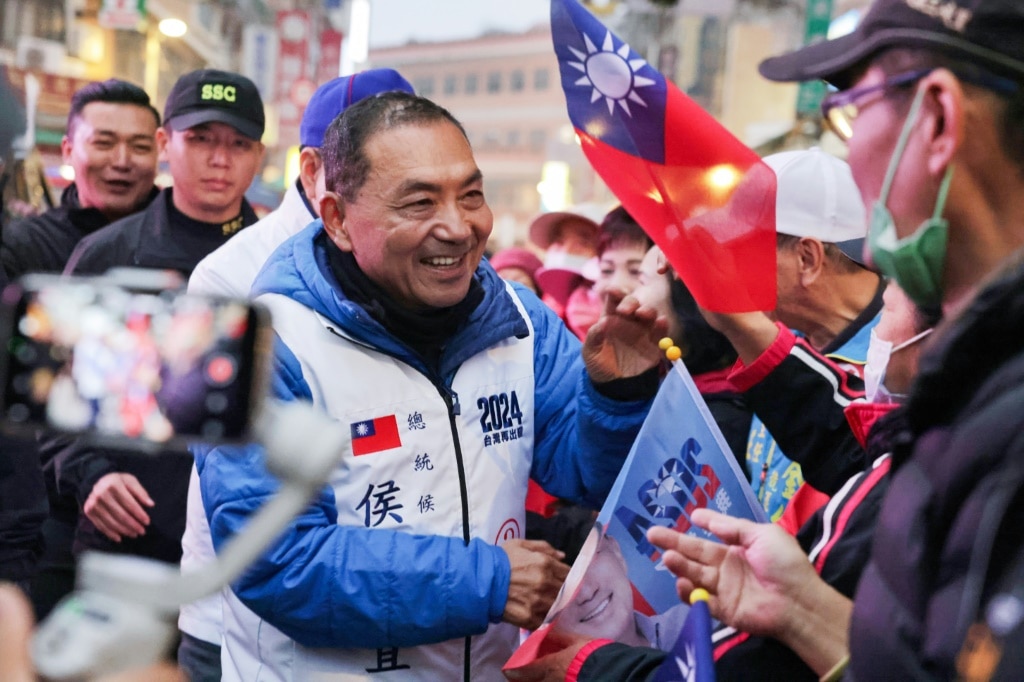

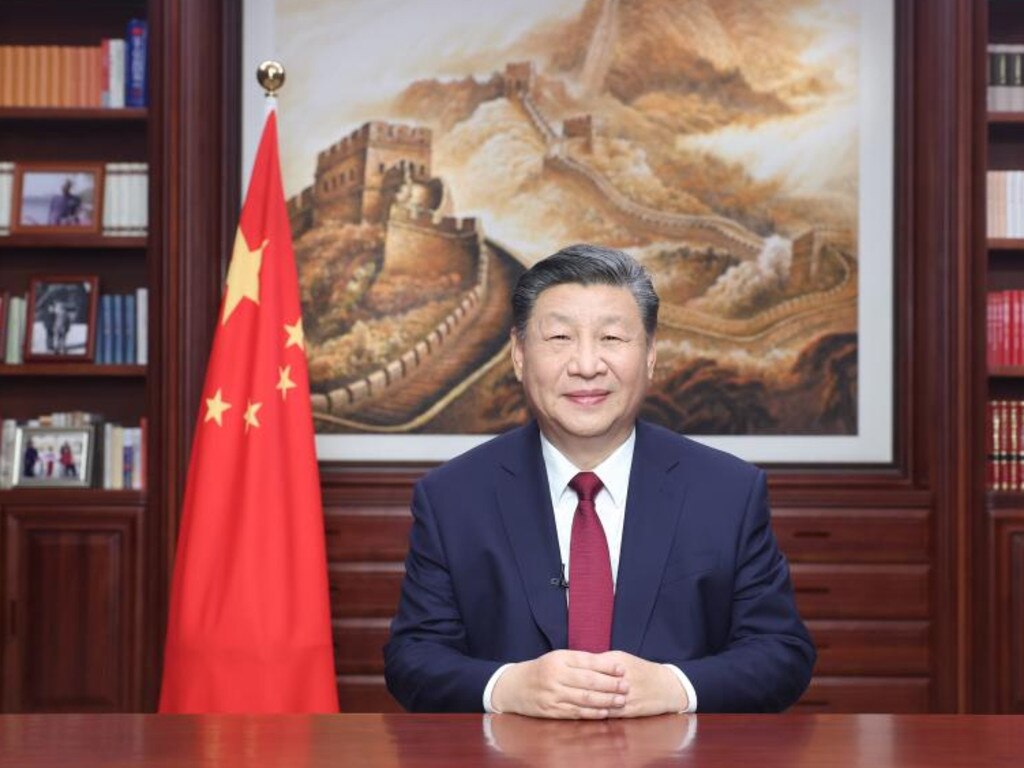


To join the conversation, please log in. Don't have an account? Register
Join the conversation, you are commenting as Logout